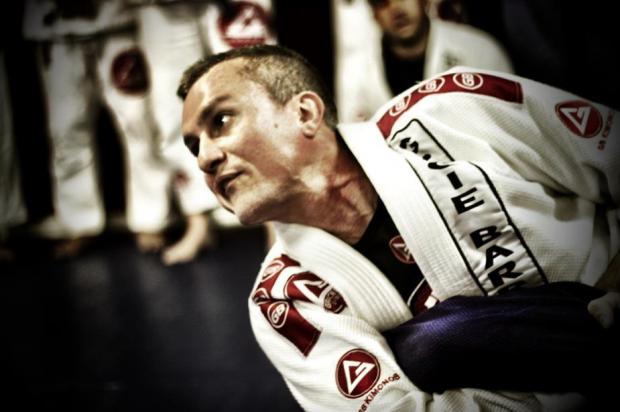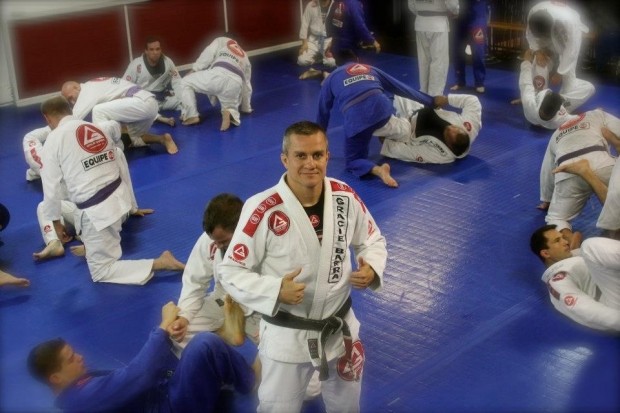GB Interview: Professor Draculino on Competition
This week Gracie Barra Blog brings you a terrific Interview with Professor Draculino on Competition
“Competition is fundamental for athletics in general, and this is also very true for Brazilian Jiu-Jitsu.
Competition is an important component to the Gracie Barra community. It drives athletes to strive for goals, reach for new heights, and pursue athletic goals on a different plane from the non-competing JJ students. Not only does competition offer something different and special to students, but it is also a window through which we can show ourselves to the world, demonstrating Gracie Barra’s commitment to excellence.” Gracie Barra HQ
read also: Do You Want To Compete?
Gracie Barra caught up with Professor Vinicius “Draculino” Magalhães on his holiday in Brazil to ask a few questions about bjj competition.
GB: Professor Draculino, can you tell the readers at Gracie Barra a little about how you got started in competing in jiu-jitsu back in Brazil? What do you consider the highlights of your competitive career?
Professor Draculino: My competition career in jiu-jitsu began very early. As soon as I was a white belt still a kid. I was 14 or 15 and I got in my first competitions. I had competed in judo before when I was younger and in surfing, but jiu-jitsu competition was something different. It was like a fight without strikes and I got addicted to it!
From the time I was 14 or 15 in jiu-jitsu all the way until I was 40 years old I had an MMA fight in Strikeforce. MMA I considered part of jiu-jistu kind of the pinnacle. Extreme!
Highlights? Hard to say, I had a lot of highlights. Every single belt I got the main titles. I would being the World Champion in No-gi in the Masters. I was 4 times Pan American Champion in the Adults black belt.
2 times silver medalist in the adults as a black belt, National champion, state champion. And a lot of things, so It is kind of hard to say the highlights of the career but I had really good moments thank God.
https://www.youtube.com/watch?v=aYxifacWtng
GB: You have been in charge of running competition training camps at Gracie Barra HQ in USA before major events. How do you run the camp? (schedule, number of sessions per week, conditioning etc.)
Professor Draculino: I have been running the Gracie Barra camps for the World Masters. So far we have had really, really good success in that event. We got 2nd place in the 1st championships; all of the others we got 1st place over all as Gracie Barra. Not just because of me in anyway, just because everybody was ready, was training hard.
I just show up around 10 days before the competition. I don’t push anybody too hard in the sense that can bring injuries to the athletes. I just make sure that we push them hard in a controlled environment.
So we do a lot of specific situations, a lot of specific training. We debate some techniques, we demand them physically but in a way that we try to prevent injuries.
Everybody liked it so far. I have been called to do this all of the time so I believe that everybody likes it!
I used to do that in Texas and in Brazil. I wish that I had more to go a little more in advance to build the foundation and have more time to put my hands on every single person who attends the camps.
It is up to the athlete to be in at least in decent shape and just do adjustments as i9t gets close to the competition. Again but the secret is to push them but make sure that nobody gets hurt.
We normally do either in the morning for 2 hours or at night for 2 hours. I normally don’t do 2 sessions a day because I think that it is too much – especially when it gets close to the competition – they do the hard part either in the morning or the night like I said.
They do something else if they need to in their time. maybe something more physical or something. And the number of athletes… Man the more the better!mIf the space is big I want to do this for more than 100 or 200!

GB: Ideally, how long before a major competition should an athlete begin special preparations for the event? How should they change their conditioning and rolling practices to be ready for the tournament?
Professor Draculino: In reality, an athlete must be in decent shape all of the time. He can not be someone who doesn’t train at all or trains too little and then goes in camp. I don’t believe in such things as camps.
I believe in being in constant good shape. Training camps should be for when you get closer to the competition. Train in the time of the rounds that you will be competing – so If your time is 10 minutes, do 10 minute rounds.
I would say 4 weeks or more before the tournament you should do rounds without interruption. Try to do rounds one after the other, changing partners. But from around 3.5 weeks – 2 weeks before the tournament you should give it a break in between every rounds to replicate what is going to happen there.
Since you already have your cardio ready and have your timing ready, you should be replicating more than anything exactly what is going to happen there. At least 10 minutes in between rounds and do like 7 rounds.
If you are predicting that you are going to have 4 rounds or 5 rounds to be the champion at a tournament, you should do at least 2 more always. Physical conditioning and all that depends a lot of availability, time, and for each person.
I believe that jiu-jitsu should be training jiu-jitsu of course, jiu-jitsu training should always be number one. It should be that way
GB: How do you feel about the current popular sports bjj strategies that emphasize positions like berimbolo, inverted guard and lapel guard?
Professor Draculino: I am more in favour of the evolution. I actually like and appreciate the new techniques such as inverted guard, berimbolo, and lapel guard. They are all good. I don’t have anything against them. I think that it is part of the evolution of the sport.
I think that they need to be taught, they need to be understood. Even if you want to defend against them.
They are techniques that have really good applications. I don’t have anything against them.
My only problem is that I see one of the most critical problems in jiu-jitsu – in sports jiu-jitsu nowadays is the double guard pull.
The people are not being penalized enough. It makes the fight really ugly. Hard to understand for a sponsor, or TV or for a beginner standpoint. But I think they are good techniques; they show the evolution. I don’t think the technique has any fault.
The fault is on changing the rules to make it a little bit more exciting, a little more understandable for the general public. We understand it because we have been doing this forever.
I think that the double pull guard and all that game that nobody wants to go on top – that is the big problem in sports jiu-jitsu nowadays.

GB: A common question many beginner students have about competition is feeling very nervous before the tournament. What advice do you have to help with pre competition stress?
Professor Draculino: It is very common for beginners. I would say no matter what, that they are going to be nervous in any combat sport, competition will bring the butterflies. It happens to all of us. Even after all of these years I still have it before competitions. It is normal.
It is something that some people are addicted to, to be honest. It is something that is always going to happen but you have to control it. After all of these years I have found out that it is inevitable that you will feel that.
It is very rare to see somebody going there without any kind of nervousness or being anxious. They always going to be. I think that it is better to try to take your mind off of the task in times that you don’t need to be 100% focused.
You don’t need to be thinking about this thing 24 / 7 because then it drains you. Try to get something that brings you pleasure and takes your attention out of the mission.
Then at the time of the competition, at the time that you make-weight, the time of the warmup then you focus 100%.
I think that a lack of focus is as bad as too much focus. I try to watch a movie, have some friends that laugh, play video games or just play with my dogs. Something to take my mind off of the task.
GB: What advice do you give your students regarding strategy or game plan before a competition?
Professor Draculino: I say something simple: try to impose your game. Try to do what you do best.
Competition is not the time to experiment! You have to experiment at the school, at the gym, in training.
That is where you have to risk yourself, put yourself in situations that you do not normally do to evolve your game overall. But in the competition you should stick to what you do best.
Sometimes the strategy goes in the toilet when the match happens, you have to be ready to perform according to what is on your plate! That is why the base period in the gym is so important. You have to be good overall because you never know what you will be facing.
Try to do what you do best during the matches. Always face very match as though it was the last one. Don’t try to think about the next matches because maybe you will get surprised! It happened to me before and I am pretty sure that it has also happened to a bunch of people.
Always remember to go out there and have fun. At the end of the day don’t put so much pressure on yourself because you stop thinking well. Strategy is king! In the short periods of rounds and depending on what weight classes and belt that you compete at,..one mistake can cost you the match.
Thank you for your time!
read also: Do You Want To Compete?
Credits: Mark Mullen
Gracie Barra Black belt based in Saigon, Vietnam
